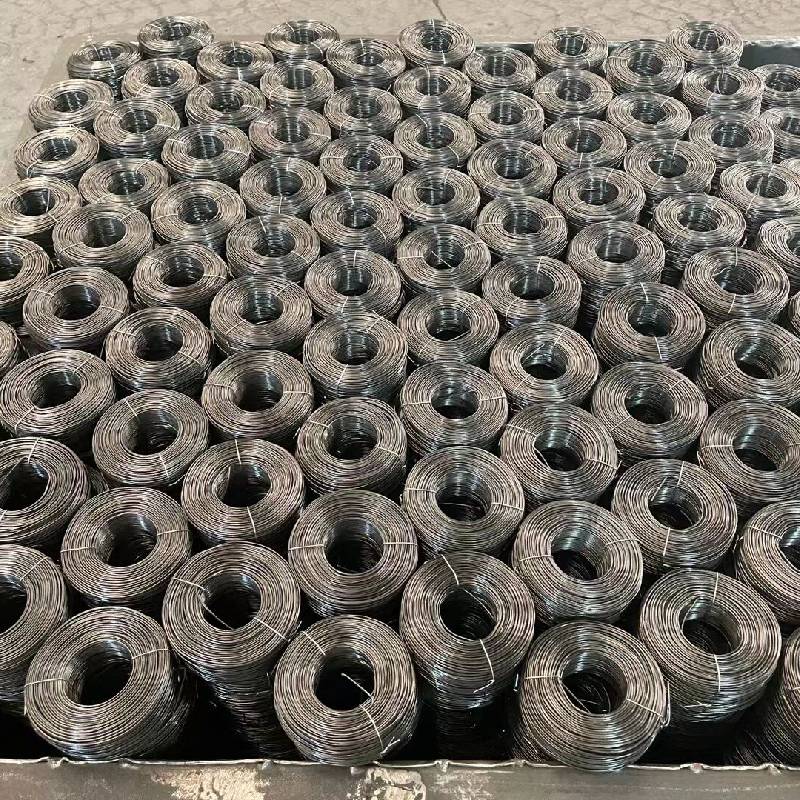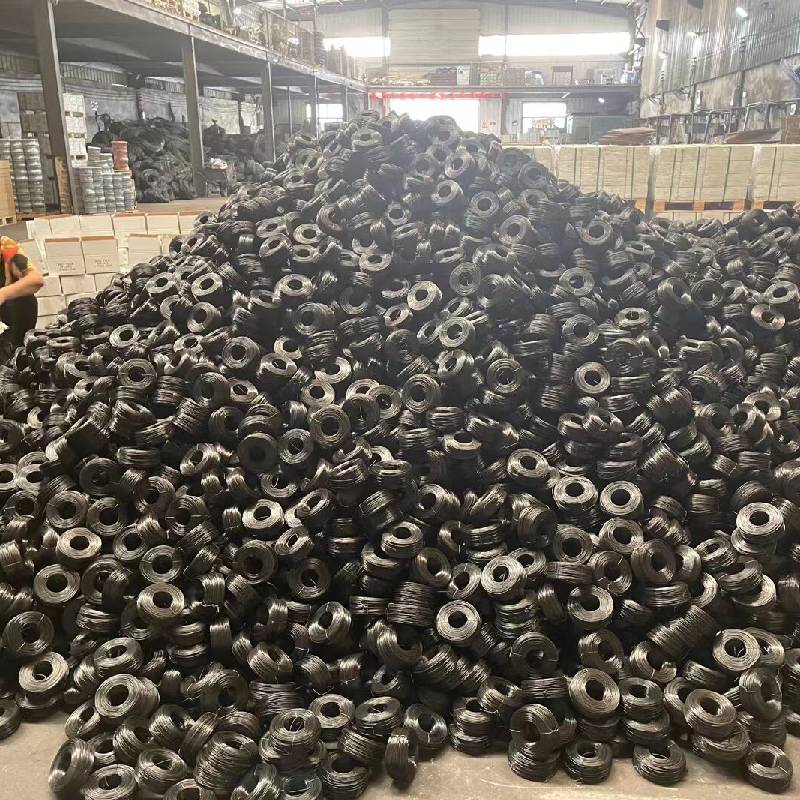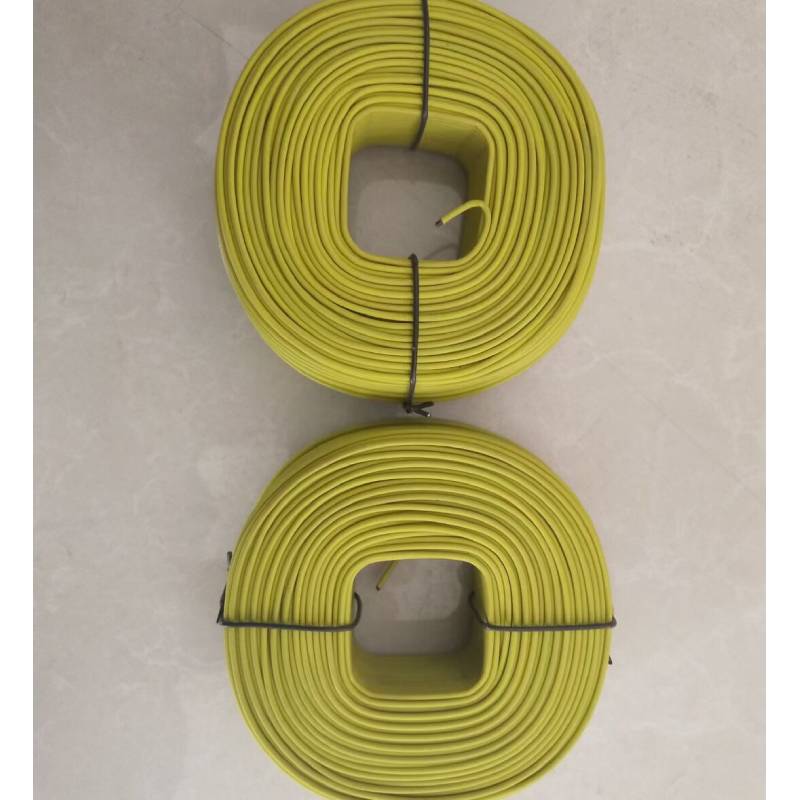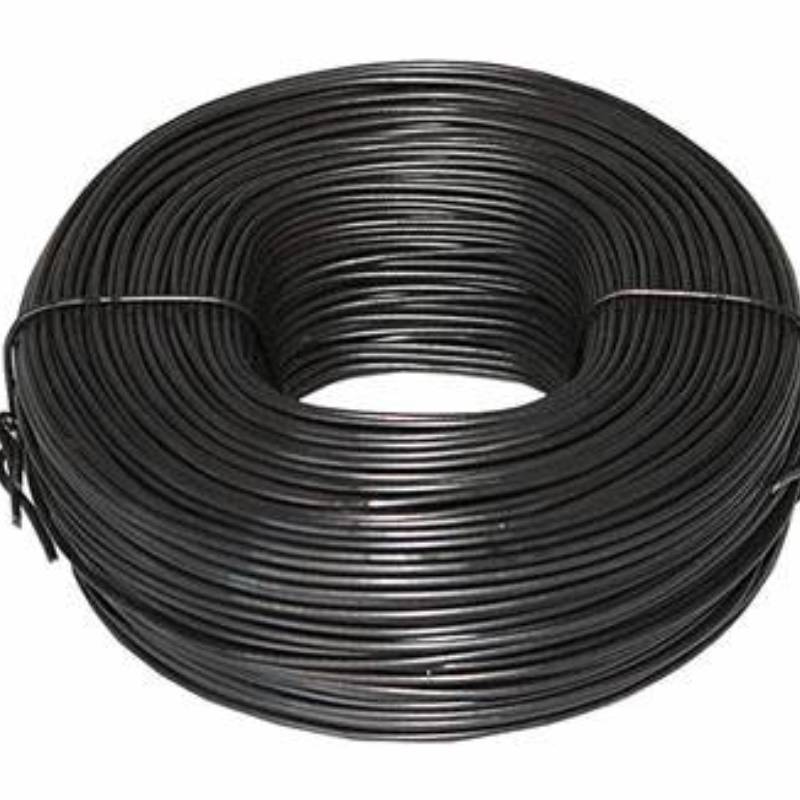
- Mobile Phone
- +8613931874955
- sales@cntcmetal.com
Iron Barbed Wire: Durable Security Fencing & Barriers
Understanding Iron Barbed Wire in Industrial Applications
In the vast landscape of industrial and infrastructural development, the reliability and security offered by robust materials are paramount. Among these, iron barbed wire stands as a cornerstone for a multitude of applications, from perimeter security to agricultural fencing and specialized construction needs. This comprehensive overview delves into the intricate world of iron wire products, examining their manufacturing processes, technical specifications, diverse applications, and the competitive advantages they offer in demanding B2B environments. While often associated with security barriers, the underlying principles of iron wire production extend to various forms, including flexible solutions like rebar tie wire, which are crucial for structural integrity.
The versatility of iron wire, whether in its barbed configuration or as a foundational element like soft iron wire for reinforcement, positions it as an indispensable material across target industries such as petrochemicals, metallurgy, and water supply & drainage. Our exploration will also incorporate related products like iron mesh wire and specialized variants such as electro galvanized iron wire and nickel iron wire, showcasing the breadth of their utility and the innovative solutions they provide to modern industrial challenges.
Process Flow: From Raw Material to Robust Iron Wire
The manufacturing of high-quality iron wire products, including specialized versions like wrought iron wire and general purpose wire for iron applications, is a sophisticated process demanding precision and adherence to stringent quality control. The journey typically begins with high-carbon or low-carbon steel rods, which are then transformed through a series of mechanical and thermal treatments.
Key Manufacturing Steps:
- Wire Rod Preparation: Raw steel rods, typically 5.5mm to 8mm in diameter, undergo descaling (mechanical or chemical) to remove impurities and mill scale, ensuring a clean surface for subsequent processing.
- Wire Drawing: This crucial stage involves pulling the descaled rod through a series of progressively smaller dies. This cold working process reduces the wire's diameter, enhances its tensile strength, and improves surface finish. For products like soft iron wire, specific drawing parameters are employed to achieve desired ductility.
- Annealing (for Soft Iron Wire and Black Annealed Steel Iron Wire): Annealing is a heat treatment process where drawn wire is heated to a high temperature (e.g., 700-900°C) and then slowly cooled. This process recrystallizes the grain structure, removing internal stresses, increasing ductility, and making the wire softer and more pliable, ideal for applications like rebar tying. Black annealed steel iron wire specifically gets its black finish from the annealing process in a controlled atmosphere.
- Surface Treatment (Galvanizing/Coating): To enhance corrosion resistance, wires often undergo galvanization. This can be hot-dip galvanizing (immersing the wire in molten zinc) or electro-galvanizing (electroplating zinc onto the wire). Electro galvanized iron wire offers a smooth, uniform coating. For specialized applications, polymer coatings or unique alloys like nickel iron wire are utilized for superior resistance to specific chemical environments.
- Barbing (for Iron Barbed Wire): For iron barbed wire itself, two strands of galvanized or annealed iron wire are twisted together, and barbs (short, sharp wire pieces) are twisted onto one or both strands at regular intervals using specialized machinery. This creates the characteristic deterrent feature.
- Quality Control and Testing: Throughout the process, strict quality control measures are implemented. This includes testing for tensile strength, elongation, wire diameter, zinc coating thickness, adhesion, and uniformity. Adherence to international standards such as ISO 9001, ASTM A121, and ANSI/AWWA C104 ensures product reliability and performance.
- Packaging: Finished wire products are then coiled, spooled, or packaged according to customer specifications, ensuring safe transport and storage.

Illustrative image of quality iron wire production line components.
The typical service life of galvanized iron barbed wire or other coated iron wire products can range from 10 to 30 years, depending on the coating thickness, environmental conditions, and material quality. In demanding sectors like petrochemicals and metallurgy, where corrosion resistance is paramount, specialized coatings and high-grade materials significantly extend operational lifespan.
Technical Specifications and Material Excellence
The performance of any iron barbed wire or related iron wire product is intrinsically linked to its technical specifications. Understanding these parameters is crucial for selecting the appropriate material for specific industrial demands. Below is a detailed look at common specifications for various iron wire types, highlighting their critical characteristics.
Typical Specifications for Iron Wire Products (e.g., Rebar Tie Wire, Black Annealed, Galvanized)
| Parameter | Rebar Tie Wire (Soft Iron Wire) | Electro Galvanized Iron Wire | Black Annealed Steel Iron Wire | Nickel Iron Wire (Specialty) |
|---|---|---|---|---|
| Material Grade | Low Carbon Steel (Q195/SAE1006) | Low Carbon Steel (Q195/SAE1006) | Low Carbon Steel (Q195/SAE1006) | Iron-Nickel Alloy |
| Wire Diameter Range | 0.8 mm - 2.0 mm (14-22 Gauge) | 0.2 mm - 5.0 mm (6-34 Gauge) | 0.7 mm - 4.0 mm (8-22 Gauge) | 0.02 mm - 6.0 mm (Custom) |
| Tensile Strength | 350-550 MPa | 350-550 MPa | 300-450 MPa (Softer) | 400-700 MPa (Varies by alloy) |
| Elongation | 15-25% | 10-20% | 20-35% (High Ductility) | 15-30% |
| Zinc Coating Thickness | N/A (often uncoated for rebar tie) | 10-20 g/m² (Electro) | N/A (oxidized surface) | N/A (alloy inherent resistance) |
| Corrosion Resistance | Low (typically for internal use) | Moderate | Low | Excellent (chemical, high temp) |
| Key Feature | Extreme pliability, easy tying | Smooth finish, consistent coating | Very soft, high ductility, economical | High-temperature, chemical, electrical |

Close-up of neatly coiled rebar tie wire, an example of soft iron wire.
For iron barbed wire specifically, additional parameters such as barb spacing, number of points (2-point or 4-point), and strand configuration (single or double strand) are critical. Standard barb spacing is typically 3-6 inches (75-150 mm), ensuring effective deterrence while optimizing material usage.
Our commitment to authoritative standards is reflected in our rigorous testing protocols, adhering to ISO, ASTM, and DIN norms. This ensures that every batch of wire for iron applications, from standard fencing wire to specialized rebar tie wire, meets the highest benchmarks for tensile strength, elongation, and corrosion resistance, providing unparalleled reliability for our clientele.
Application Scenarios and Industry Trends
The utility of iron barbed wire and related iron wire products spans a vast array of industries, driven by their inherent strength, durability, and cost-effectiveness. Industry trends indicate a growing demand for specialized, coated, and higher-performance wire solutions, particularly in rapidly developing regions and sectors requiring enhanced security and structural integrity.
Diverse Application Scenarios:
- Construction and Infrastructure: Rebar tie wire (a form of soft iron wire) is indispensable for securing rebar grids in concrete structures, ensuring reinforcement stability during pouring. The expanding global infrastructure development fuels consistent demand for reliable tie wire. Iron mesh wire also finds extensive use in concrete reinforcement, plastering, and general construction.
- Security and Fencing: Traditional iron barbed wire is a primary choice for perimeter security around industrial sites, military bases, correctional facilities, and private properties. Its deterrent properties are globally recognized. The market is seeing an increased demand for PVC-coated barbed wire for extended aesthetic life and corrosion resistance.
- Agriculture and Livestock Management: Farmers extensively use iron barbed wire for containing livestock and marking property boundaries. The durability of galvanized options is critical in outdoor agricultural settings.
- Petrochemical and Energy Sectors: In environments prone to corrosive agents, such as oil refineries and chemical plants, specialized wires like nickel iron wire or heavy-duty galvanized wire are essential for fencing, structural support, and even internal component fabrication where standard iron would quickly degrade. Long service life translates to energy saving through reduced maintenance and replacement cycles.
- Metallurgy and Mining: Robust iron wires are used in various processes, from packaging and bundling metal products to supporting structures in mining operations. The high tensile strength of specialized wire for iron applications is crucial here.
- Water Supply & Drainage: Galvanized iron wires are deployed in water treatment facilities and drainage systems for fencing, support structures, and even as components within filtration systems, chosen for their resilience against moisture and mild corrosive elements.

Various applications of iron wire products in construction and industrial settings.
Emerging trends indicate a shift towards more sustainable manufacturing processes, increased automation in wire production, and the development of intelligent wire solutions with integrated sensors for structural monitoring. The demand for materials that offer superior corrosion resistance and extended service life continues to grow, emphasizing the need for advanced coatings and alloy compositions like those found in premium nickel iron wire products.
Technical Advantages and Performance Metrics
The inherent technical advantages of well-engineered iron barbed wire and other iron wire products derive from their material composition, manufacturing precision, and robust coatings. These advantages translate directly into significant operational benefits for industrial clients.
Core Advantages:
- Superior Tensile Strength: Through controlled wire drawing and heat treatment processes, iron wire achieves high tensile strength, ensuring it can withstand significant loads and stresses without breaking. This is critical for security fences, structural ties, and industrial bundling.
- Exceptional Corrosion Resistance: For galvanized products, particularly electro galvanized iron wire, the zinc coating provides a sacrificial barrier against rust and corrosion, significantly extending service life in harsh outdoor and industrial environments. This directly contributes to energy saving by reducing the frequency of replacement and associated labor.
- High Ductility and Pliability: Products like soft iron wire and black annealed steel iron wire are specifically engineered for maximum flexibility, making them easy to tie, bend, and manipulate without compromising integrity, which is essential for rebar tying and crafting applications.
- Cost-Effectiveness: Compared to alternative materials, iron wire products offer a compelling balance of performance and affordability, making them a preferred choice for large-scale projects where budget constraints are critical.
- Versatility: Available in a wide range of gauges, coatings, and configurations (e.g., plain, barbed, woven as iron mesh wire), iron wire can be precisely tailored to meet specific application requirements.

Ensuring robust quality through advanced wire testing and inspection.
Our adherence to stringent testing standards, including ISO 9001 certifications, ensures that every product, whether it's insulated iron wire for specific electrical needs or standard construction wire, consistently meets performance expectations. We collaborate with accredited third-party laboratories to validate tensile strength, coating thickness, and material composition, guaranteeing the authoritative quality our B2B partners depend on.
Vendor Comparison and Customized Solutions
Choosing the right supplier for iron barbed wire and other industrial wire products is crucial for project success. A discerning B2B buyer looks beyond just price, focusing on quality, reliability, customization capabilities, and post-sales support. Below is a comparison of key vendor attributes, followed by an exploration of our tailored solutions.
Key Vendor Comparison Factors:
| Feature | Our Offering | Typical Competitor |
|---|---|---|
| Material Certifications | ISO 9001, ASTM, SGS, independent lab tests | Basic factory certs, limited external validation |
| Product Range | Comprehensive: electro galvanized iron wire, black annealed steel iron wire, soft iron wire, iron mesh wire, specialty alloys (e.g., nickel iron wire) | Limited standard sizes and types |
| Customization Options | Extensive: gauge, coating, tensile strength, packaging, barb design for iron barbed wire | Minimal customization, off-the-shelf only |
| Lead Time & Logistics | Optimized supply chain, global shipping, reliable lead times (e.g., 15-30 days) | Variable, potential delays, limited logistics support |
| After-Sales Support | Dedicated technical support, warranty, issue resolution | Limited or non-existent support post-delivery |
| Experience & Reputation | Decades of experience, established global client base, positive feedback | Newer entrant or less specialized |
Tailored Customized Solutions:
Recognizing that standard products often don't meet the precise demands of specialized industrial projects, we offer comprehensive customization services for all our wire for iron products. This bespoke approach ensures optimal performance, minimizes waste, and maximizes project efficiency.
- Specific Wire Gauge and Coil Size: From ultra-fine wire for delicate applications to heavy-gauge wrought iron wire for structural uses, we can produce according to precise diameter and coil weight requirements.
- Custom Coating Options: Beyond standard galvanization, we offer diverse coating solutions, including heavy-duty zinc coatings, PVC/polymer coatings for enhanced weather resistance or specific colors, and specialized alloys for chemical inertness. This includes bespoke options for insulated iron wire for particular electrical or thermal properties.
- Tensile Strength and Elongation Tuning: Through precise control of the drawing and annealing processes, we can fine-tune the mechanical properties of the wire to meet specific load-bearing or flexibility requirements.
- Barbing Configurations for Iron Barbed Wire: Custom barb spacing, number of points, and strand counts can be specified for unique security needs.
- Specialized Packaging: From small coils for manual use to large, machine-ready spools, our packaging solutions are designed for ease of handling, storage, and compatibility with automated production lines.

Showcasing precision engineering and quality control in wire manufacturing.
Our team of engineers and technical experts works closely with clients from initial concept to final delivery, ensuring that customized solutions for iron barbed wire or any iron wire product are perfectly aligned with project specifications and performance expectations.
Application Case Studies: Real-World Impact
The practical application of high-quality iron wire products is best illustrated through real-world case studies, demonstrating their tangible benefits and the expertise required to implement them successfully. Our extensive experience, partnering with leading clients across various sectors for many years, underscores our authoritativeness in the field.
Case Study 1: Large-Scale Infrastructure Project - Rebar Tying Solution
Challenge: A major construction firm undertaking a multi-billion-dollar bridge project required a consistent supply of highly pliable, durable soft iron wire for manual and automated rebar tying. Inconsistent wire quality from previous suppliers led to frequent breakages, slowing down construction and increasing labor costs.
Solution: We provided custom-sized coils of our premium black annealed steel iron wire, specifically engineered for optimal ductility (over 25% elongation) and consistent tensile strength (380-420 MPa). This wire was subjected to rigorous testing, including bend tests and tensile tests, exceeding ASTM A853 standards. We also established a just-in-time delivery schedule to their various construction sites.
Outcome: The construction firm reported a 15% increase in tying efficiency due to reduced wire breakages and improved material handling. The project met critical deadlines, and significant cost savings were realized in labor and material waste. Our reliable supply chain and consistent product quality secured a long-term partnership.
Case Study 2: High-Security Industrial Perimeter - Galvanized Iron Barbed Wire
Challenge: A petrochemical complex in a coastal region required an upgrade to its perimeter security, demanding extreme corrosion resistance and formidable deterrent capabilities for their iron barbed wire. Previous galvanized wire solutions showed premature degradation due to saline air and industrial pollutants.
Solution: We supplied a heavy-duty electro galvanized iron wire for the barbed wire production, featuring a zinc coating thickness of 200 g/m² (far exceeding standard specifications). The barbed wire was manufactured with a 4-point, reverse twist configuration, designed for maximum deterrence and structural integrity. Each batch underwent extensive salt spray testing (over 1000 hours) to simulate the harsh coastal environment.
Outcome: After three years of exposure, the installed iron barbed wire showed negligible signs of corrosion, significantly outperforming previous installations. The enhanced security profile, coupled with a dramatically extended service life, resulted in substantial long-term maintenance savings and improved operational security for the plant. This project underscored the advantage of superior corrosion resistance, contributing to notable energy saving over time by eliminating the need for frequent replacements.
Case Study 3: Agricultural Fencing for Remote Holdings - Wrought Iron Wire Mesh
Challenge: A large agricultural cooperative needed durable, long-lasting fencing for extensive livestock enclosures in remote, rugged terrain. Ease of installation and minimal maintenance were key requirements, along with effective animal containment.
Solution: We provided rolls of woven wrought iron wire in a mesh configuration, specifically designed for agricultural use. This robust iron mesh wire featured a heavy hot-dip galvanized coating for maximum protection against weather elements and livestock abrasion. We advised on appropriate post spacing and installation techniques, leveraging our experience in similar remote projects.
Outcome: The cooperative successfully installed over 50 kilometers of fencing. The strength and resilience of the iron mesh wire proved highly effective in containing various livestock without damage. The superior galvanization ensured a projected lifespan of over 25 years, minimizing future maintenance and replacement costs, a crucial factor for their remote operations.
Trustworthiness: FAQ, Lead Time, Warranty & Support
Building trust with our B2B partners is at the core of our operations. This section addresses common inquiries, outlines our operational commitments, and details our robust support framework, ensuring complete peace of mind when sourcing your wire for iron requirements.
Frequently Asked Questions (FAQ):
Q: What is the primary difference between galvanized and black annealed iron wire?
A: Galvanized iron barbed wire or other galvanized iron wire features a protective zinc coating, offering superior corrosion resistance for outdoor and humid environments. Black annealed steel iron wire is heat-treated to maximize ductility and pliability, making it ideal for applications requiring easy bending and tying, typically in less corrosive, indoor, or temporary settings. It does not offer the same level of rust protection as galvanized wire.
Q: Can you customize the barb spacing for iron barbed wire?
A: Yes, we offer extensive customization for iron barbed wire. Clients can specify barb spacing (e.g., 3 inches, 4 inches, 5 inches), wire gauge, strand configuration (single or double), and even the type of coating (e.g., heavy galvanized, PVC-coated) to meet specific security or aesthetic requirements.
Q: What testing standards do your iron wire products adhere to?
A: All our products, including electro galvanized iron wire, soft iron wire, and iron mesh wire, are manufactured and tested in strict accordance with international standards such as ISO 9001 (Quality Management System), ASTM (American Society for Testing and Materials) A121/A641, and relevant DIN/JIS standards. We also provide third-party inspection reports upon request to ensure complete transparency and authoritativeness.
Q: Do you provide technical assistance for product selection and application?
A: Absolutely. Our team of experienced technical consultants and engineers is available to provide expert guidance on product selection, material specifications, and application best practices for all our iron wire products, from nickel iron wire to standard rebar tie wire, ensuring you choose the most suitable and cost-effective solution for your project.
Lead Time & Fulfillment Details:
Our optimized production processes and robust supply chain enable efficient order fulfillment. Standard orders for common iron barbed wire or other wire products typically have a lead time of 15-30 days, depending on volume and current production schedules. For highly customized solutions or bulk orders, a more precise lead time will be provided upon quotation. We leverage a global logistics network to ensure timely and secure delivery to your specified destination.
Warranty Commitments:
We stand behind the quality of our products. All our wire for iron solutions are backed by a comprehensive warranty against manufacturing defects and material failures under normal usage conditions. The specific warranty period and terms vary by product type and coating, typically ranging from 1 to 5 years for standard products, and extended periods for heavily coated or specialized wires like heavy galvanized iron barbed wire. Full warranty details are provided with each quotation and order confirmation, underscoring our commitment to trustworthiness.
Customer Support Information:
Our dedicated customer support team is available to assist you with any inquiries, technical questions, or post-sales support. You can reach us via phone, email, or through our website's contact portal. We prioritize prompt and effective communication to ensure your operational continuity and satisfaction. Our extensive experience in the industry allows us to provide knowledgeable and helpful assistance for all aspects of your iron barbed wire and related iron wire needs.
References
- American Society for Testing and Materials (ASTM) International. (2023). ASTM A121 / A121M-13: Standard Specification for Metallic-Coated Carbon Steel Barbed Wire.
- International Organization for Standardization (ISO). (2023). ISO 9001:2015: Quality Management Systems – Requirements.
- Corrosion Engineering: Principles and Practice. (2018). Pierre R. Roberge. McGraw-Hill Professional.
- Wire Technology: Process Engineering and Product Development. (2016). Günter D. Arndt. Wiley-VCH.
- The Construction of Barbed Wire. (2019). Smithsonian National Museum of American History.
share:
-
Creative Ways to Decorate Your Tomato CageNewsAug.22,2025
-
Common Mistakes When Installing Brick Wall TiesNewsAug.22,2025
-
Customizing Conical Springs for Aerospace ApplicationsNewsAug.22,2025
-
Galvanized Tie Wire for Binding PipesNewsAug.22,2025
-
Environmental Impact of Using Snake Spacers in PlumbingNewsAug.22,2025
-
Sacrificial Formwork Systems for Complex StructuresNewsAug.22,2025
-
Wall Ties for Concrete: Invisible Guardians of Building Structural StabilityNewsAug.08,2025
